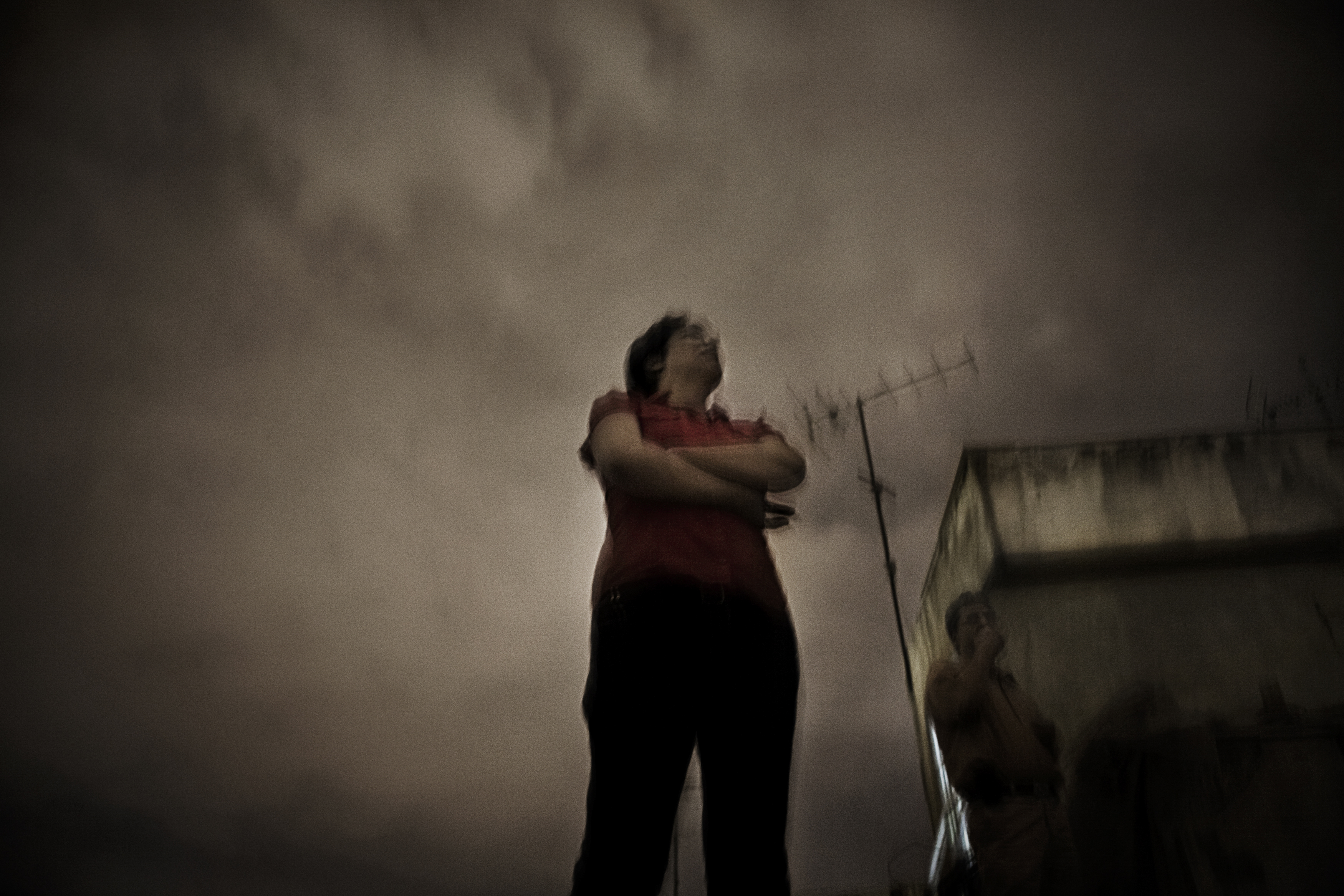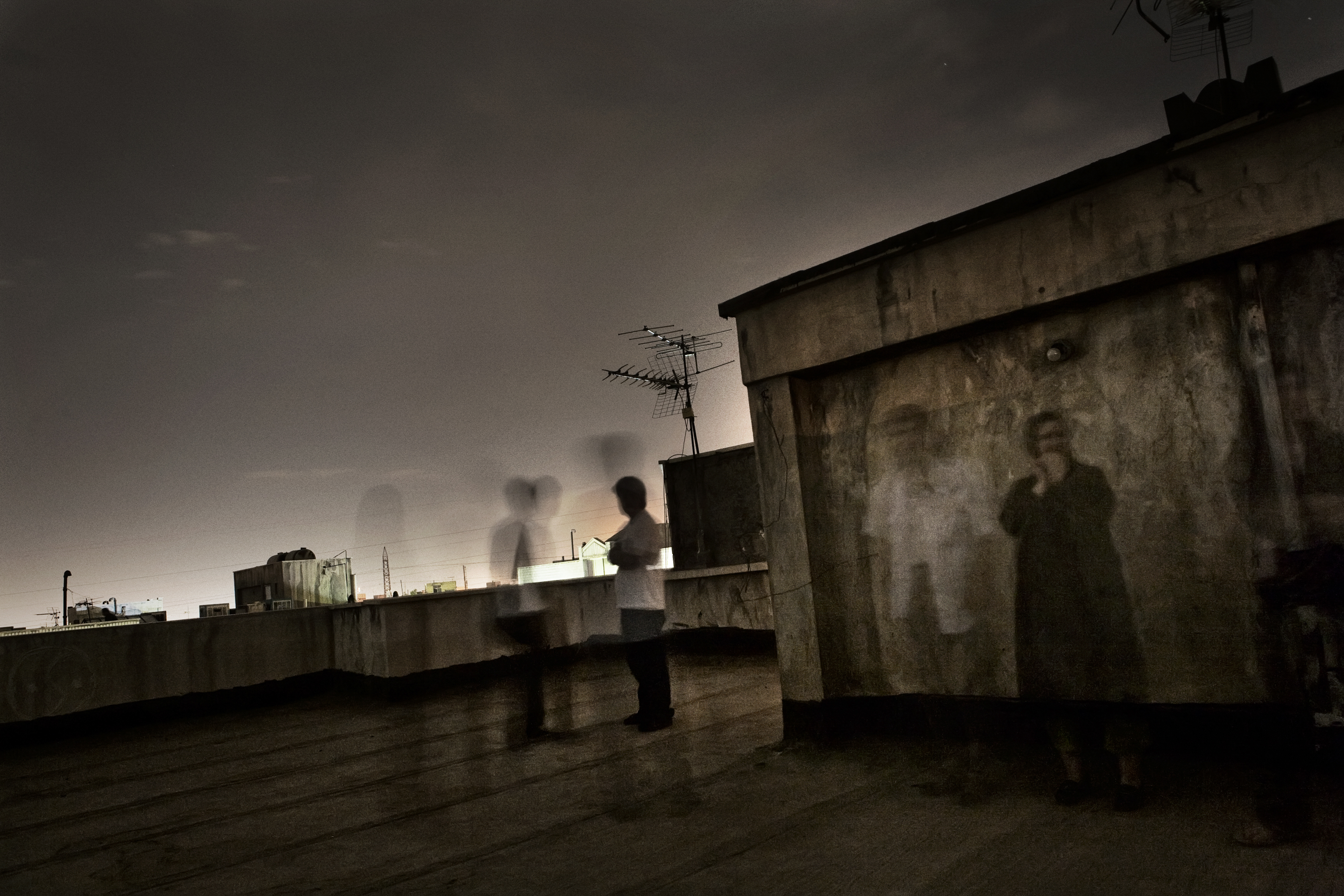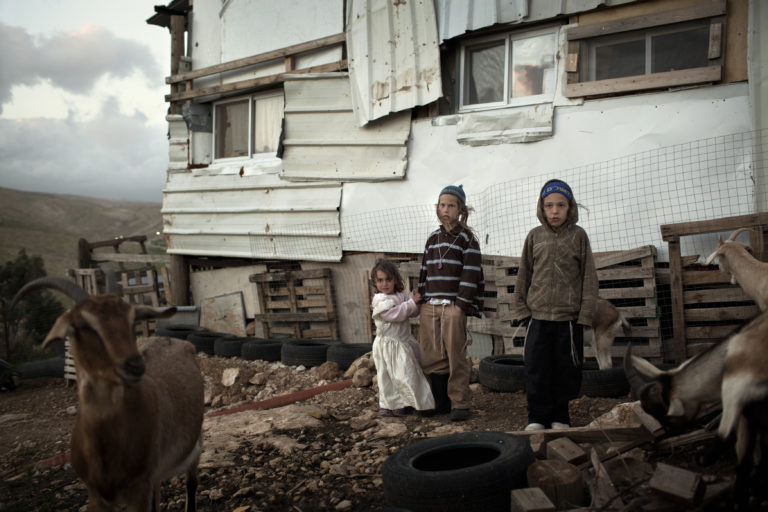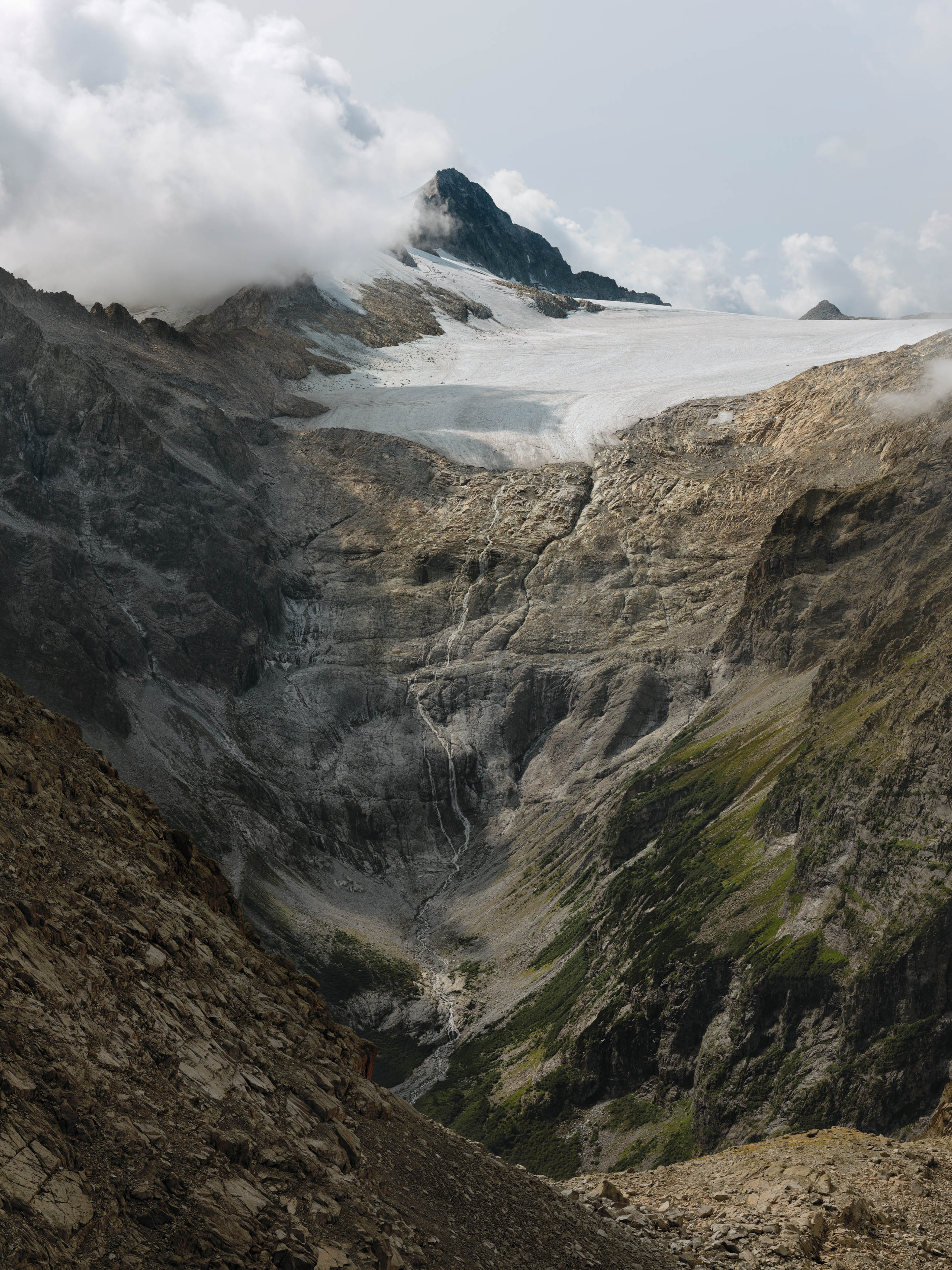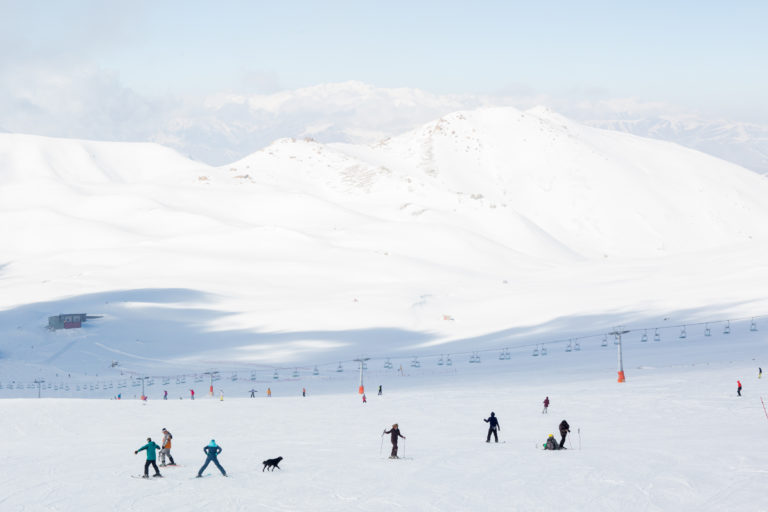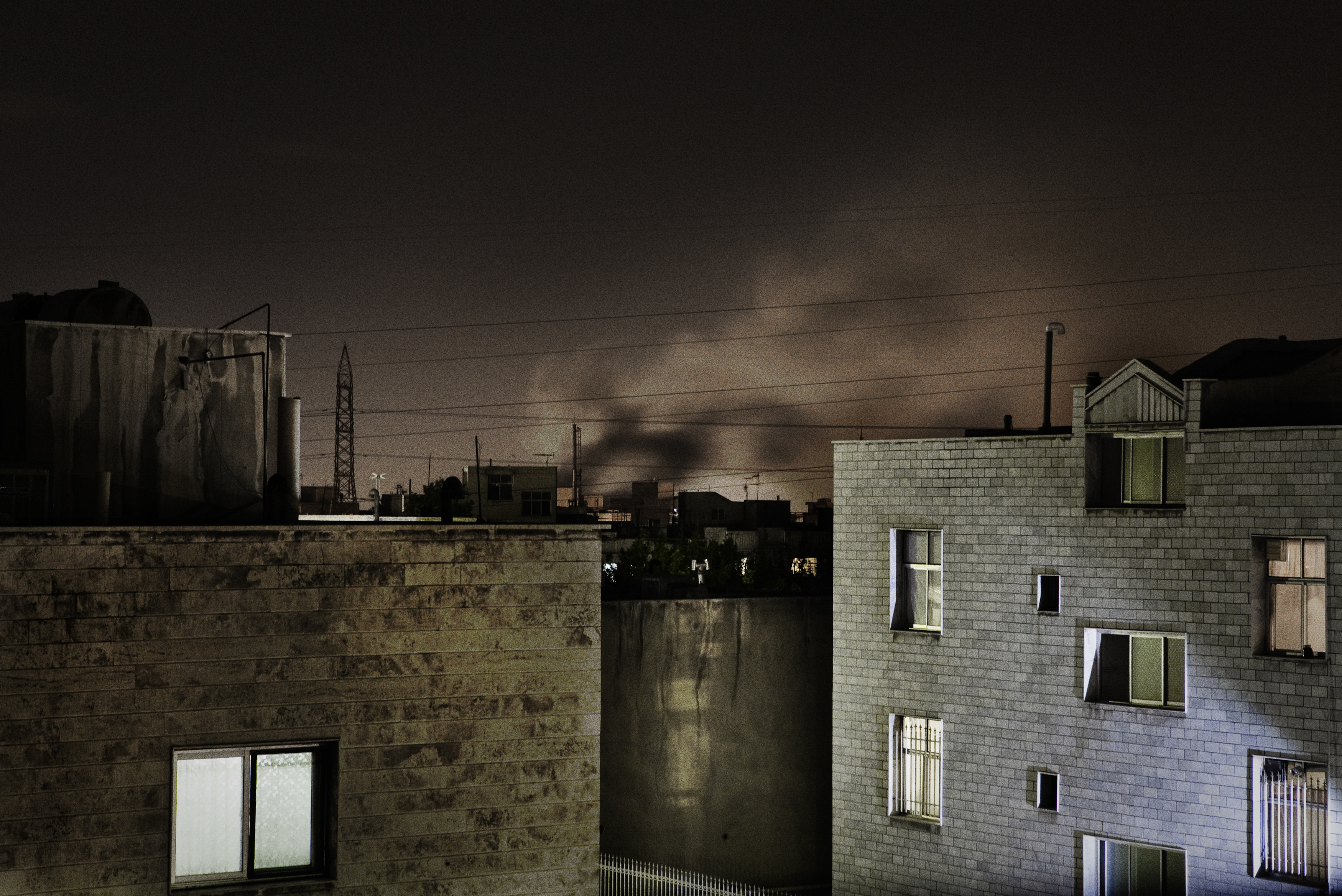
21 June 2009. A fire seen from a Tehran rooftop, following Iran's disputed presidential elections. The result had been a victory for President Mahmoud Ahmadinejad over opposition candidate Mir Hossein Mousavi, but there were allegations of vote-rigging. In the ensuing weeks, violent demonstrations took place in the streets. At night, supporters of Mousavi climbed their rooftops, shouting expressions of their discontent. As the streets emptied and went quiet after daytime demonstrations, cries of 'Allahu akbar!' and 'Death to the dictator!' filled the night air. These protests were an echo of the ones that took place during the 1979 Islamic Revolution.
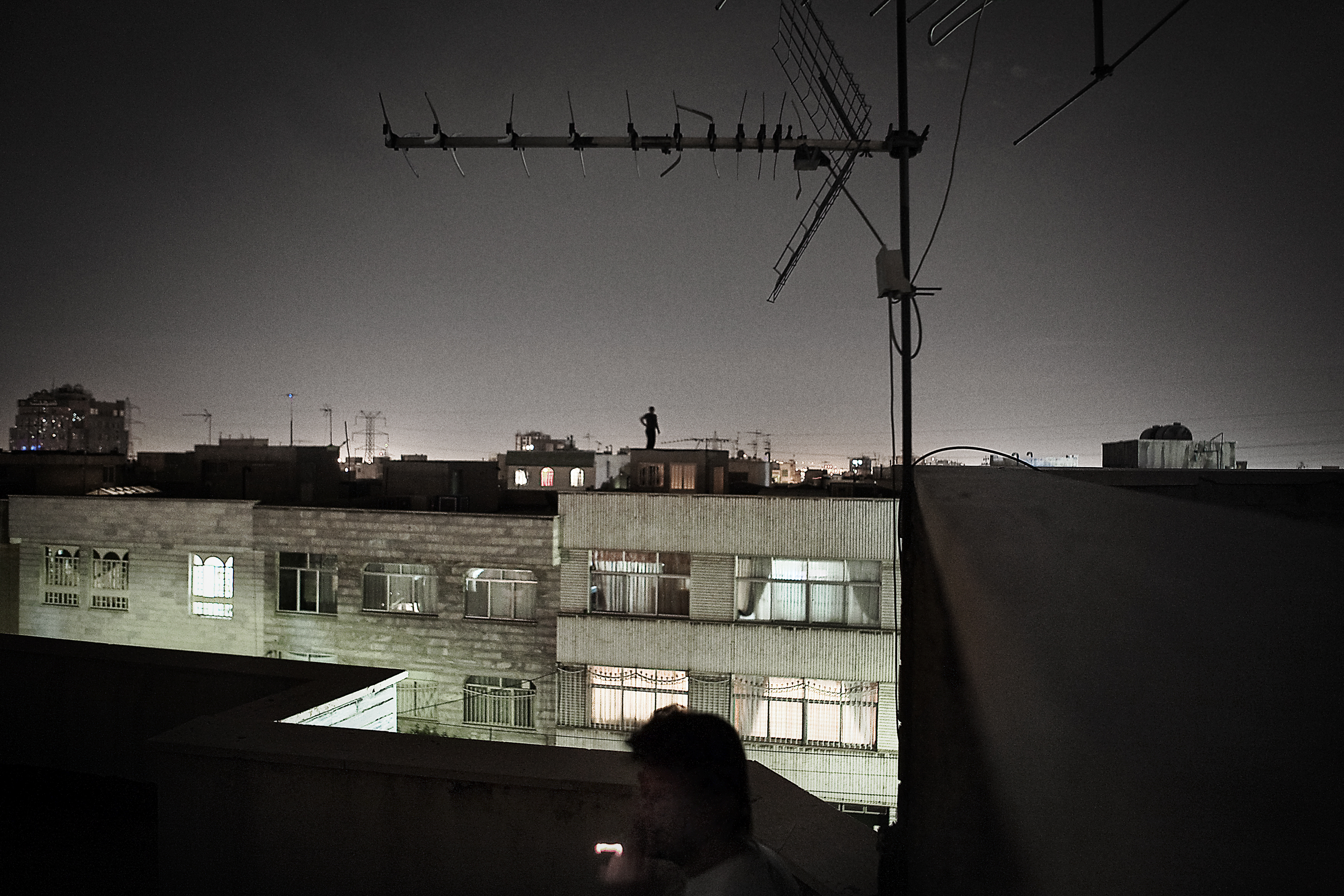
21 June, 2009 A man stands on a Tehran rooftop, following Iran's disputed presidential elections. The result had been a victory for President Mahmoud Ahmadinejad over opposition candidate Mir Hossein Mousavi, but there were allegations of vote-rigging. In the ensuing weeks, violent demonstrations took place in the streets. At night, supporters of Mousavi climbed their rooftops, shouting expressions of their discontent. As the streets emptied and went quiet after daytime demonstrations, cries of 'Allahu akbar!' and 'Death to the dictator!' filled the night air. These protests were an echo of the ones that took place during the 1979 Islamic Revolution.
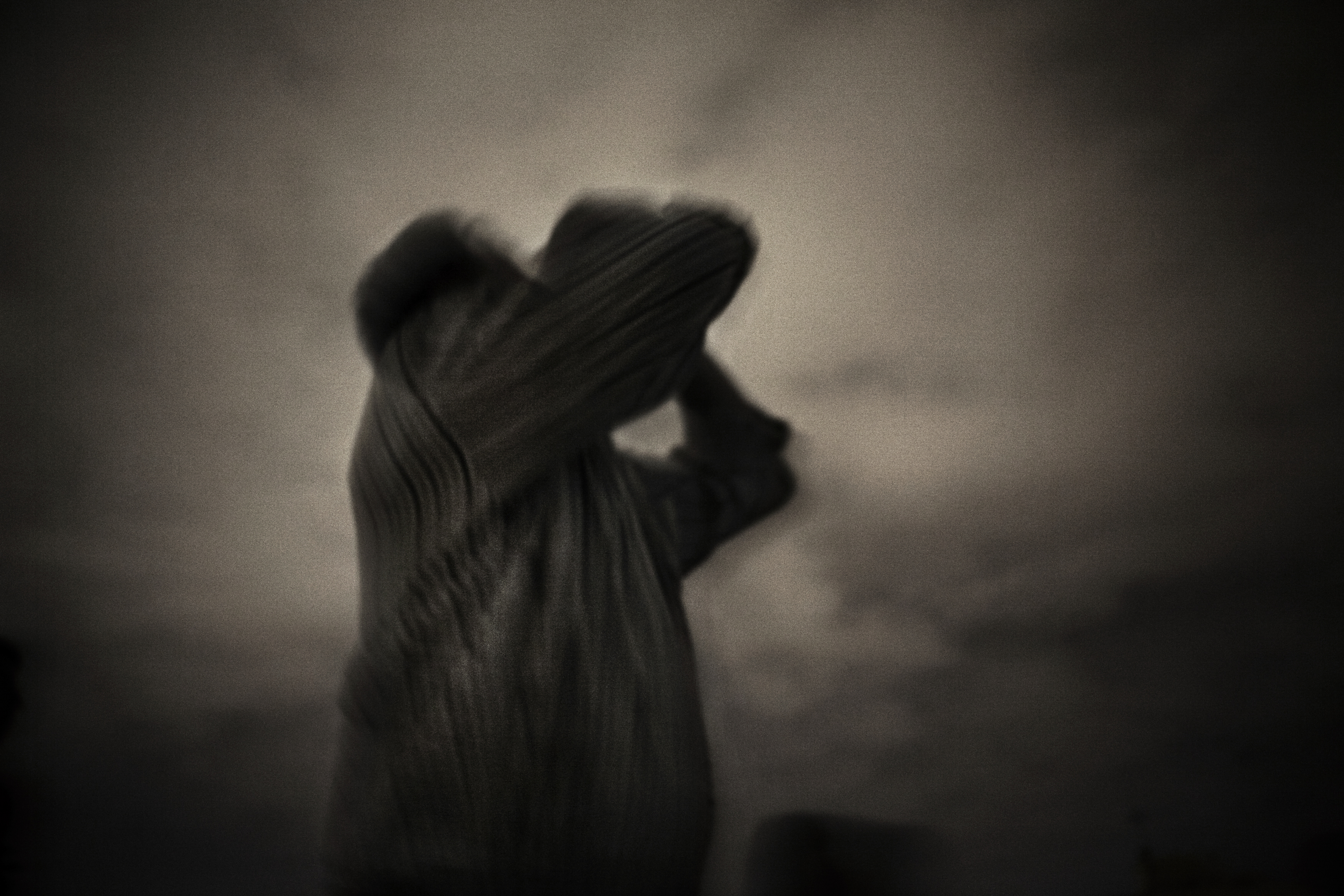
25 June, 2009 A man shouts protests against the Iranian regima from a rooftop, after the disputed presidential elections. The result had been a victory for President Mahmoud Ahmadinejad over opposition candidate Mir Hossein Mousavi, but there were allegations of vote-rigging. In the ensuing weeks, violent demonstrations took place in the streets. At night, supporters of Mousavi climbed their rooftops, shouting expressions of their discontent. As the streets emptied and went quiet after daytime demonstrations, cries of 'Allahu akbar!' and 'Death to the dictator!' filled the night air. These protests were an echo of the ones that took place during the 1979 Islamic Revolution.
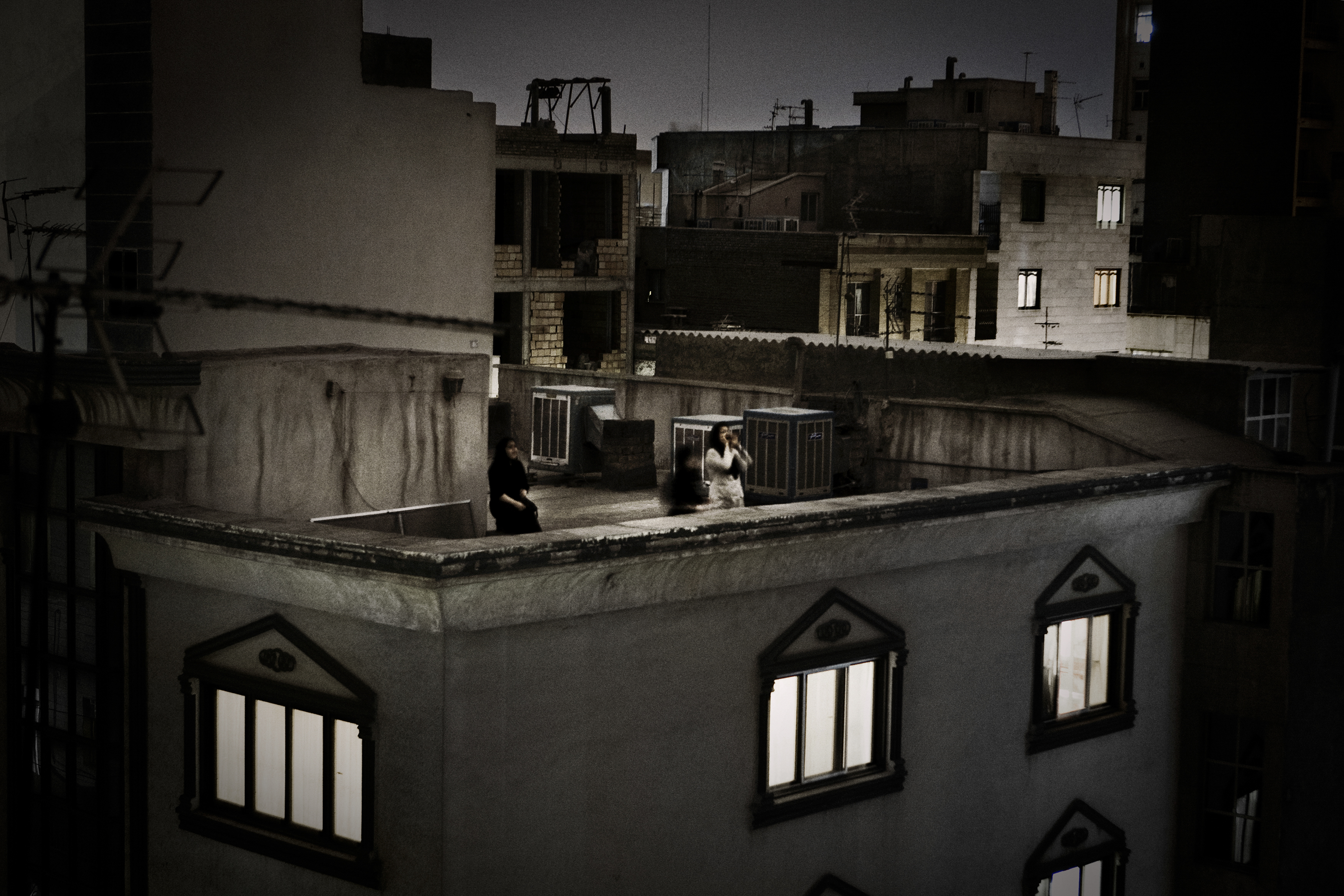
24 June, 2009 Women shout their dissent from a Tehran rooftop, following Iran's disputed presidential elections. The result had been a victory for President Mahmoud Ahmadinejad over opposition candidate Mir Hossein Mousavi, but there were allegations of vote-rigging. In the ensuing weeks, violent demonstrations took place in the streets. At night, supporters of Mousavi climbed their rooftops, shouting expressions of their discontent. As the streets emptied and went quiet after daytime demonstrations, cries of 'Allahu akbar!' and 'Death to the dictator!' filled the night air. These protests were an echo of the ones that took place during the 1979 Islamic Revolution.
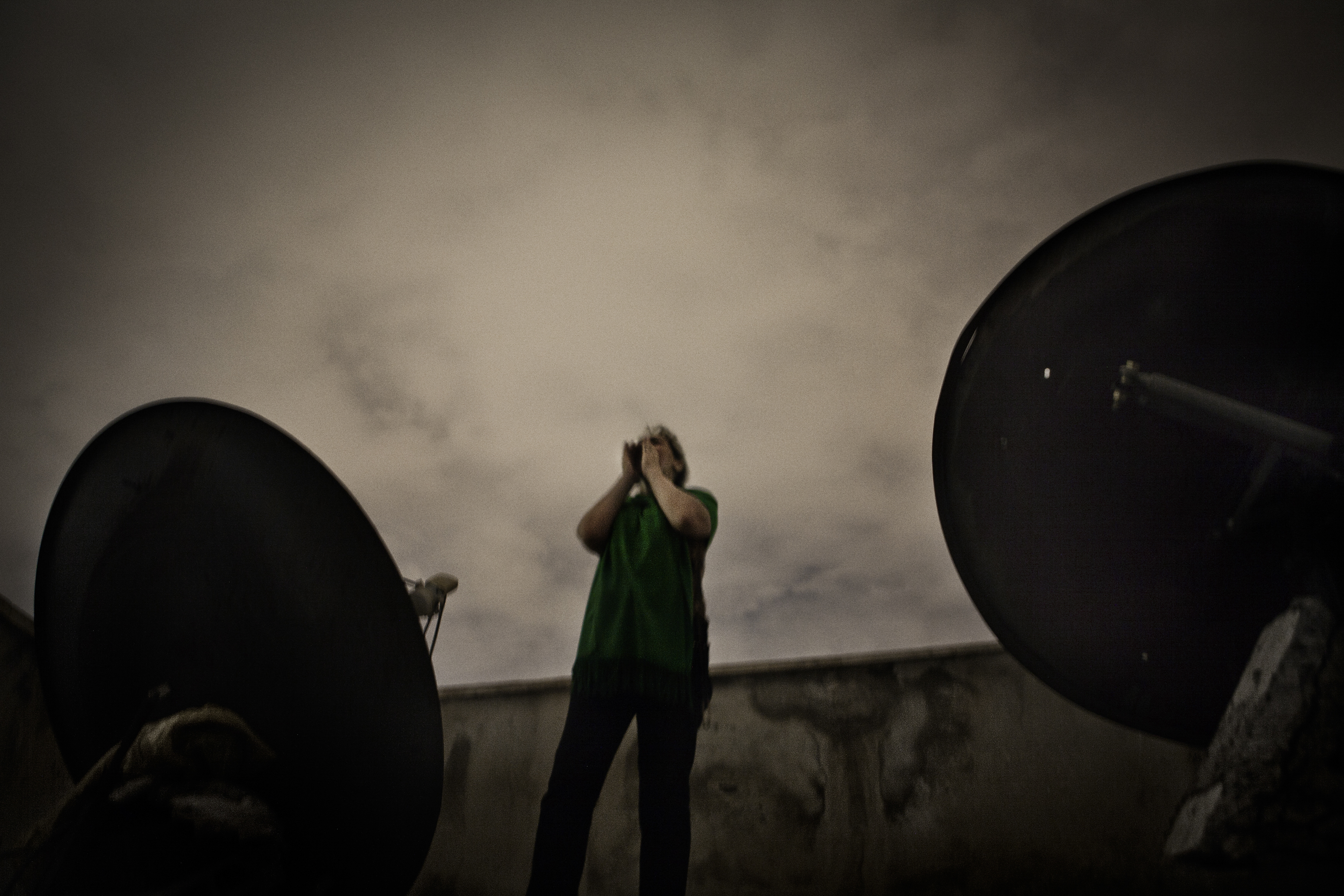
25 June, 2009 A woman shouting 'Allah u Akbar' from the rooftop in protest, after the disputed Iranian presidential elections. The result had been a victory for President Mahmoud Ahmadinejad over opposition candidate Mir Hossein Mousavi, but there were allegations of vote-rigging. In the ensuing weeks, violent demonstrations took place in the streets. At night, supporters of Mousavi climbed their rooftops, shouting expressions of their discontent. As the streets emptied and went quiet after daytime demonstrations, cries of 'Allahu akbar!' and 'Death to the dictator!' filled the night air. These protests were an echo of the ones that took place during the 1979 Islamic Revolution.
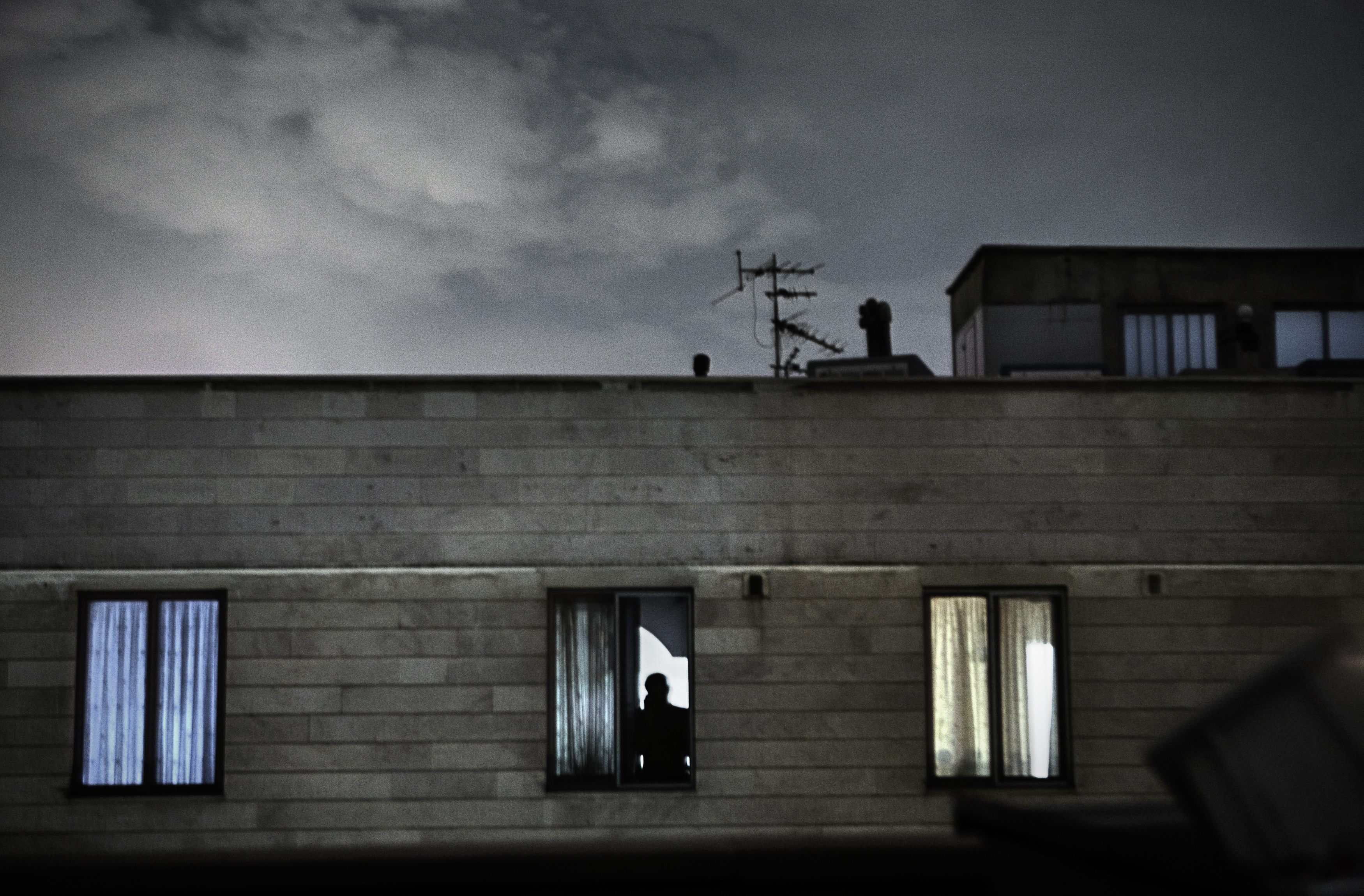
24 June, 2009 A man shouts protests against the Iranian regime from the window of his home in Tehran after the disputed presidential elections. The result had been a victory for President Mahmoud Ahmadinejad over opposition candidate Mir Hossein Mousavi, but there were allegations of vote-rigging. In the ensuing weeks, violent demonstrations took place in the streets. At night, supporters of Mousavi climbed their rooftops, shouting expressions of their discontent. As the streets emptied and went quiet after daytime demonstrations, cries of 'Allahu akbar!' and 'Death to the dictator!' filled the night air. These protests were an echo of the ones that took place during the 1979 Islamic Revolution.
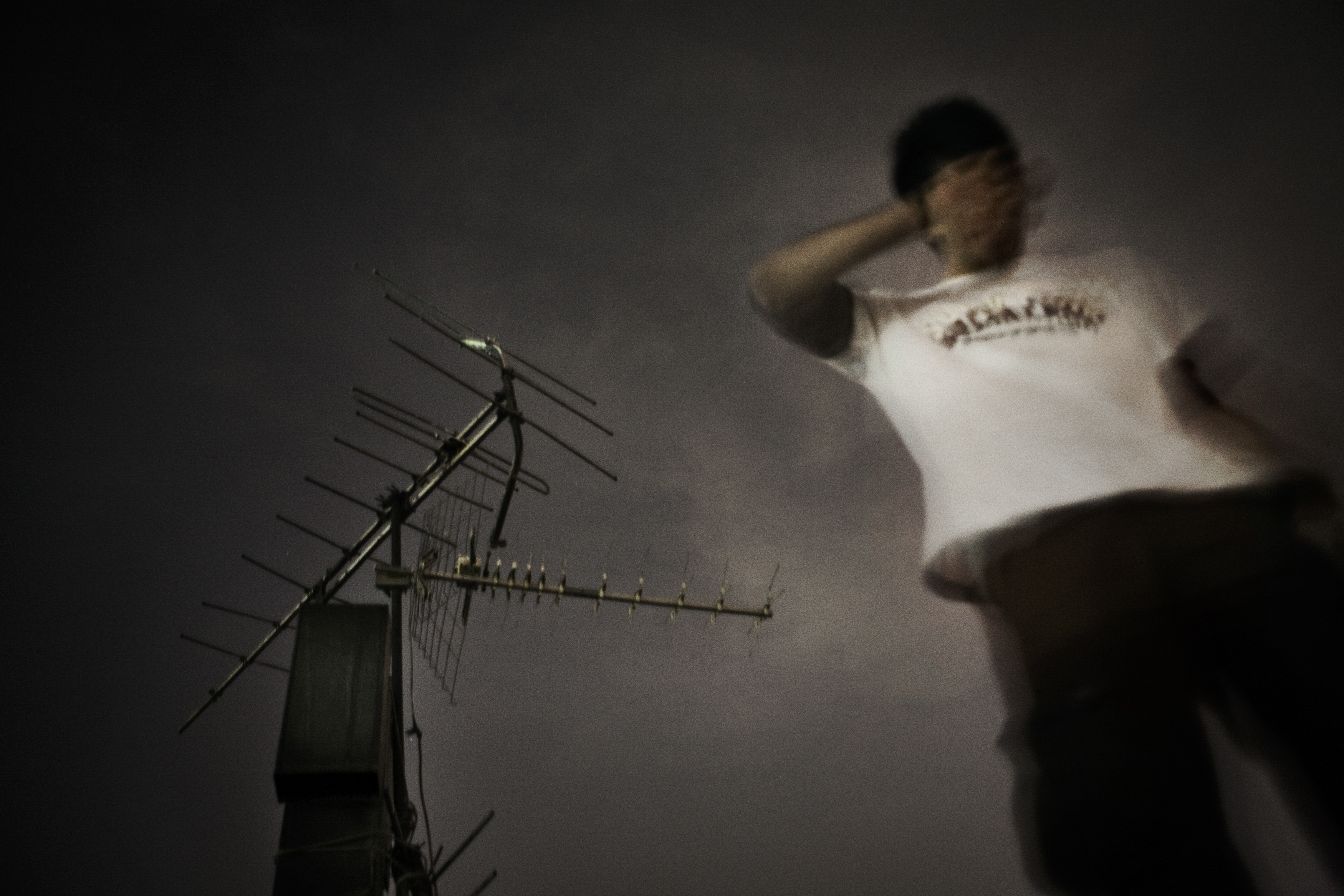
21 June, 2009 A young man cover his face in order not to be recognized during protests against the Iranian regime from Tehran's rooftops, following the disputed presidential elections. The result had been a victory for President Mahmoud Ahmadinejad over opposition candidate Mir Hossein Mousavi, but there were allegations of vote-rigging. In the ensuing weeks, violent demonstrations took place in the streets. At night, supporters of Mousavi climbed their rooftops, shouting expressions of their discontent. As the streets emptied and went quiet after daytime demonstrations, cries of 'Allahu akbar!' and 'Death to the dictator!' filled the night air. These protests were an echo of the ones that took place during the 1979 Islamic Revolution.
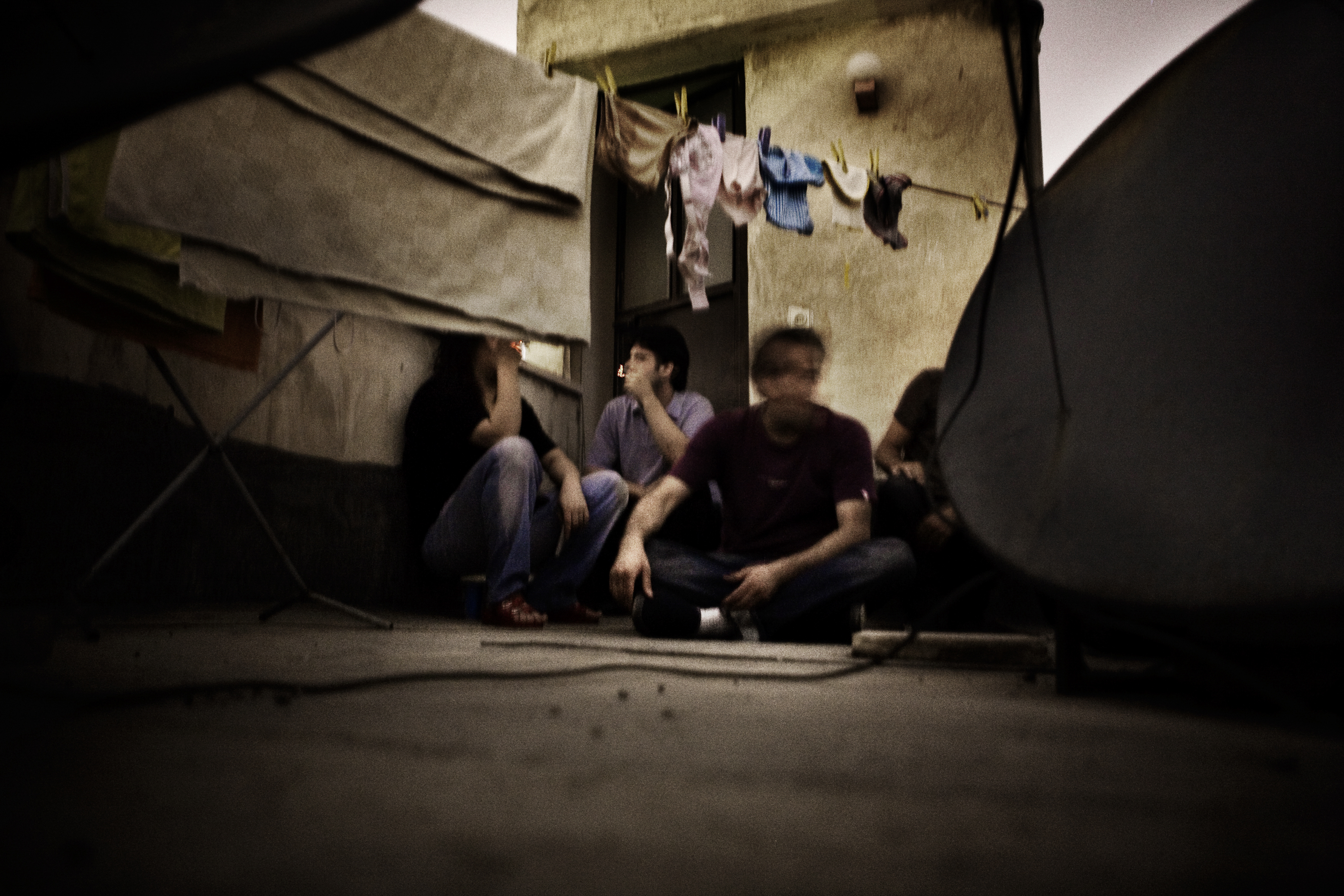
20 June, 2009 Young men sitting on a rooftop during the protests against the Iranian regime after the disputed Iranian elections. The result had been a victory for President Mahmoud Ahmadinejad over opposition candidate Mir Hossein Mousavi, but there were allegations of vote-rigging. In the ensuing weeks, violent demonstrations took place in the streets. At night, supporters of Mousavi climbed their rooftops, shouting expressions of their discontent. As the streets emptied and went quiet after daytime demonstrations, cries of 'Allahu akbar!' and 'Death to the dictator!' filled the night air. These protests were an echo of the ones that took place during the 1979 Islamic Revolution.
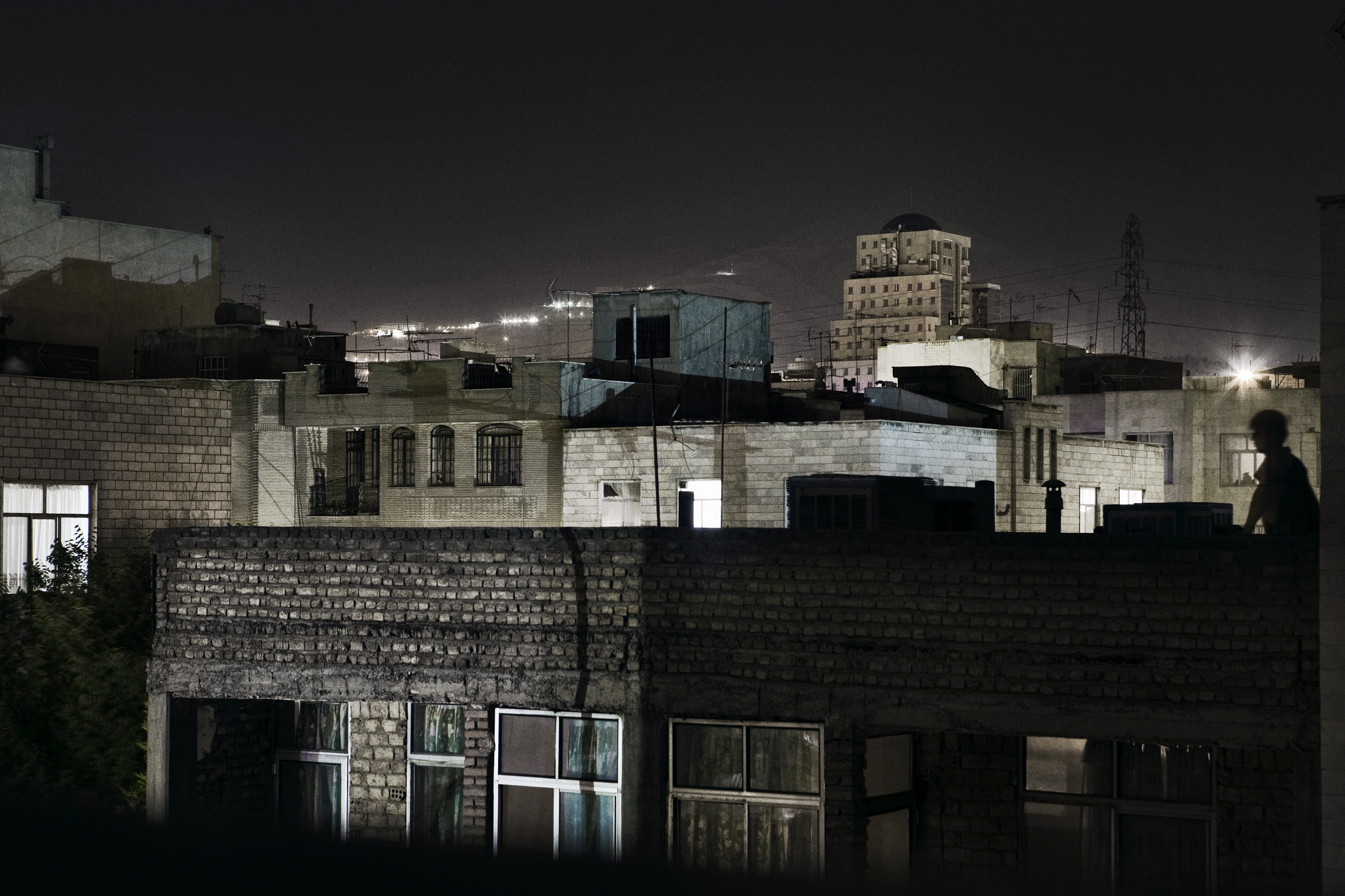
21 June, 2009 A young man stands on a rooftop, after the disputed presidential elections in Iran. The result had been a victory for President Mahmoud Ahmadinejad over opposition candidate Mir Hossein Mousavi, but there were allegations of vote-rigging. In the ensuing weeks, violent demonstrations took place in the streets. At night, supporters of Mousavi climbed their rooftops, shouting expressions of their discontent. As the streets emptied and went quiet after daytime demonstrations, cries of 'Allahu akbar!' and 'Death to the dictator!' filled the night air. These protests were an echo of the ones that took place during the 1979 Islamic Revolution.
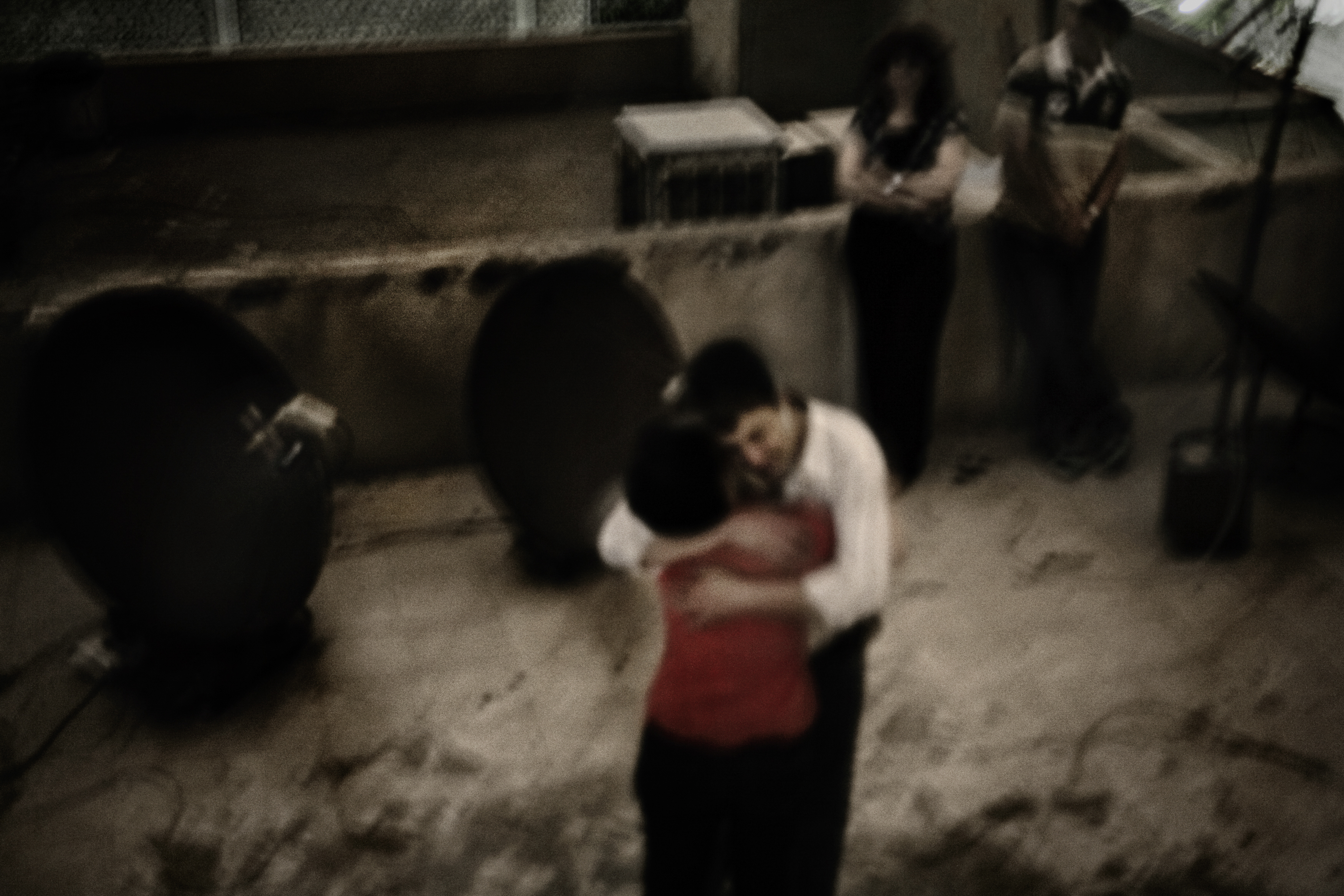
25 June, 2009 A brother and sister embrace during the rooftop protests after the disputed presidential elections in Iran. The result had been a victory for President Mahmoud Ahmadinejad over opposition candidate Mir Hossein Mousavi, but there were allegations of vote-rigging. In the ensuing weeks, violent demonstrations took place in the streets. At night, supporters of Mousavi climbed their rooftops, shouting expressions of their discontent. As the streets emptied and went quiet after daytime demonstrations, cries of 'Allahu akbar!' and 'Death to the dictator!' filled the night air. These protests were an echo of the ones that took place during the 1979 Islamic Revolution.
We get to the rooftop short before ten. We are told to stay down, pressed against the handrail, in order not to be spotted from the street or from the surrounding buildings. During the day, the militias slaughter harmless demonstrators, but at night the protest gets up here and the government is faced by its own ghosts.
The rooftops protest is a non-violent resistance technique devised by Khomeyni in 1979. Today, thirty years later, the echoing cry which shattered the Shah’s leadership has become an accusation of treason which, like a wave, might sweep away the Islamic Republic of Iran.
Like in 1979, every night people climb up on the rooftops crying “Allah u akbar”, a call for higher justice to compensate for the iniquity.
The first voice comes from far away, but there is a silence full of anticipation and we can hardly hear the cadence: the last vowel of the first word is prolonged, the rest of the sentence is pronounced almost like a single word, with a dry, sharp sound. The second voice is close by, maybe from the building right behind us, then a third and a fourth one, then many, too many to distinguish. The atmosphere around us is surreal: voices come from every direction but you cannot see anyone, the rooftops seem to be deserted, but you can be sure they are not.
Who embraces the power represented by this cry also understands with awe its destructive symbolic strength. Rulers fears the voices, because they speak of a a betrayed revolution and of a trampled people and the government fears the truth and the ghosts.
The basij, a few metres below, look up as they patrol the street, but it is not easy to see in Teheran’s night, the voices are upsetting and intangible, they are enemies impossible to hit.
Ghosts are everywhere. Their cries are chasing each other, merging in choirs, overlapping. Sometimes, in a glimpse, you can see a movement on the rooftop in front of us or on the one next to it, but you wouldn’t know whether you really saw it. Ghosts play with the dark and their faces are blurred. Their identity does not matter, it could be anyone in Teheran. And perhaps, it is.
